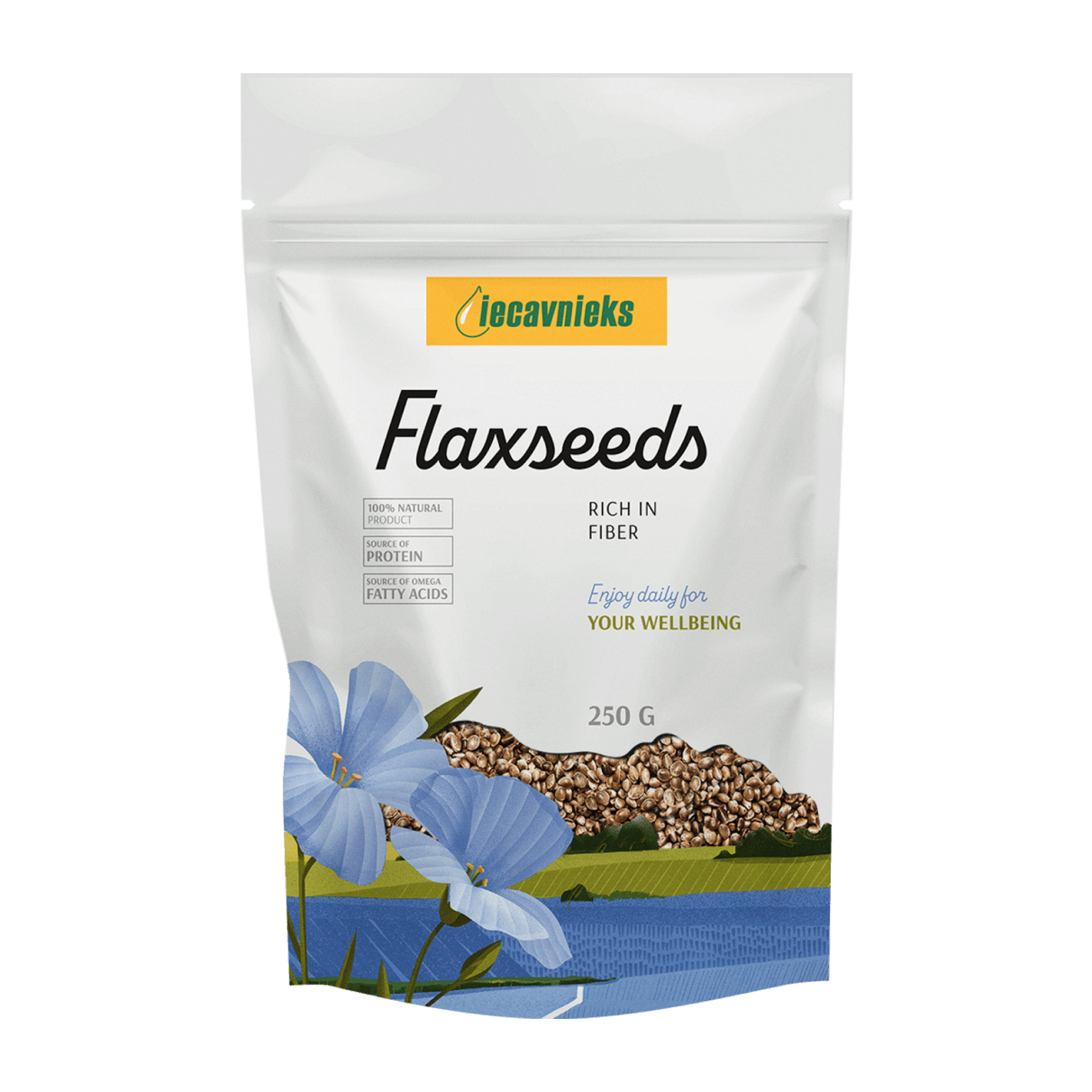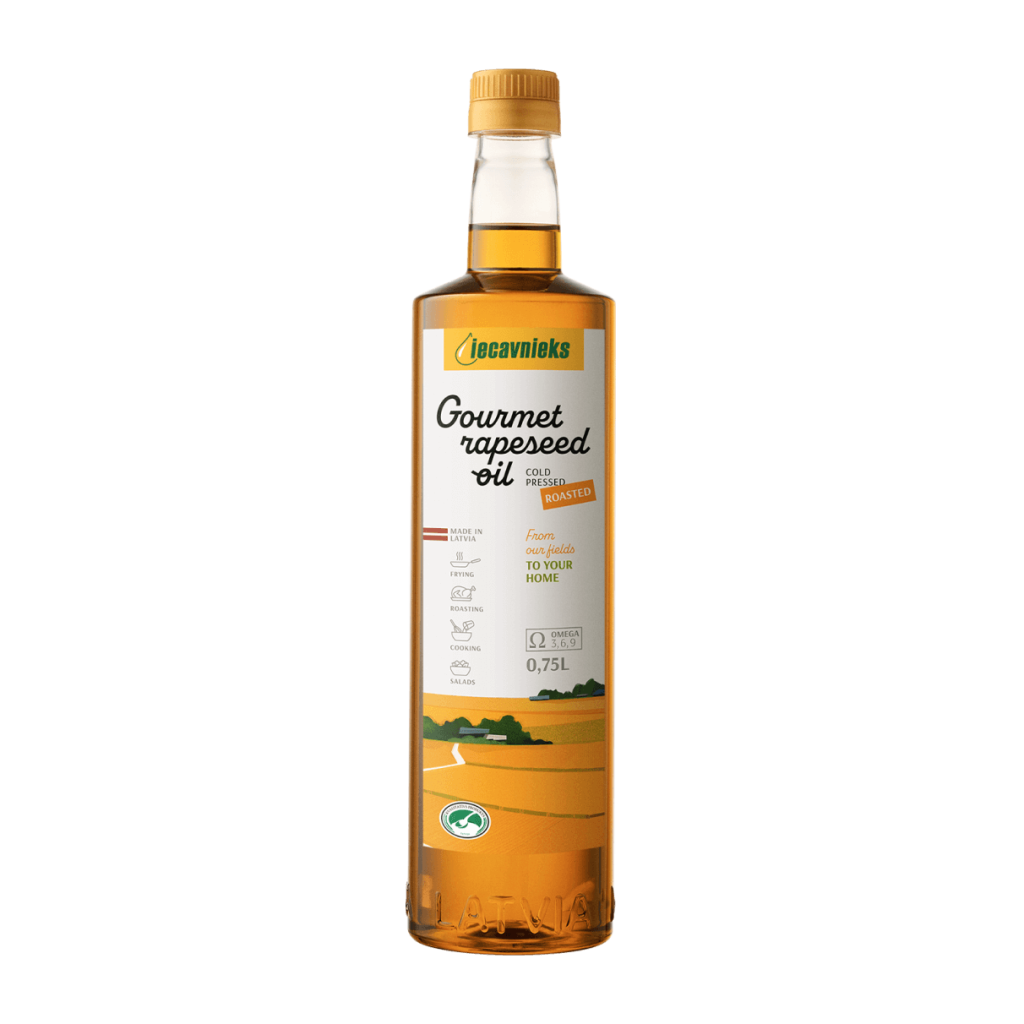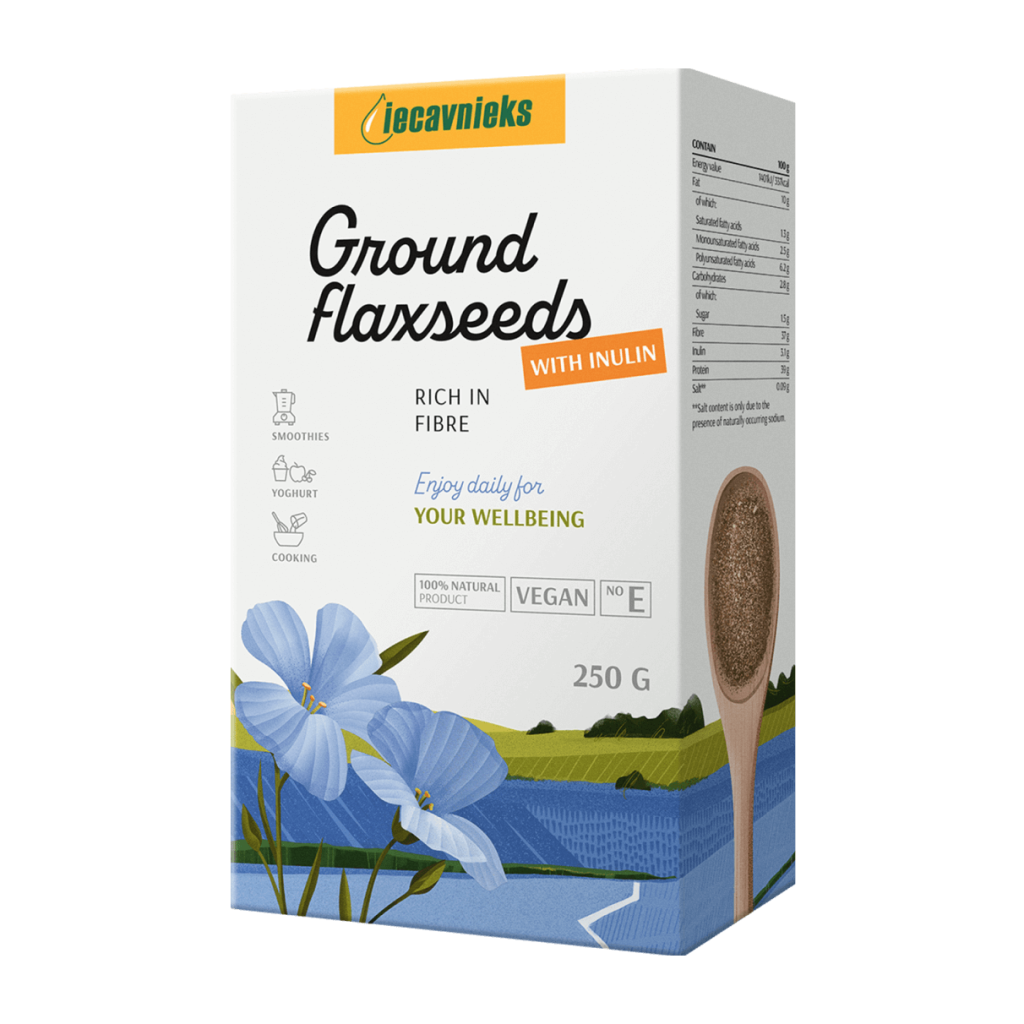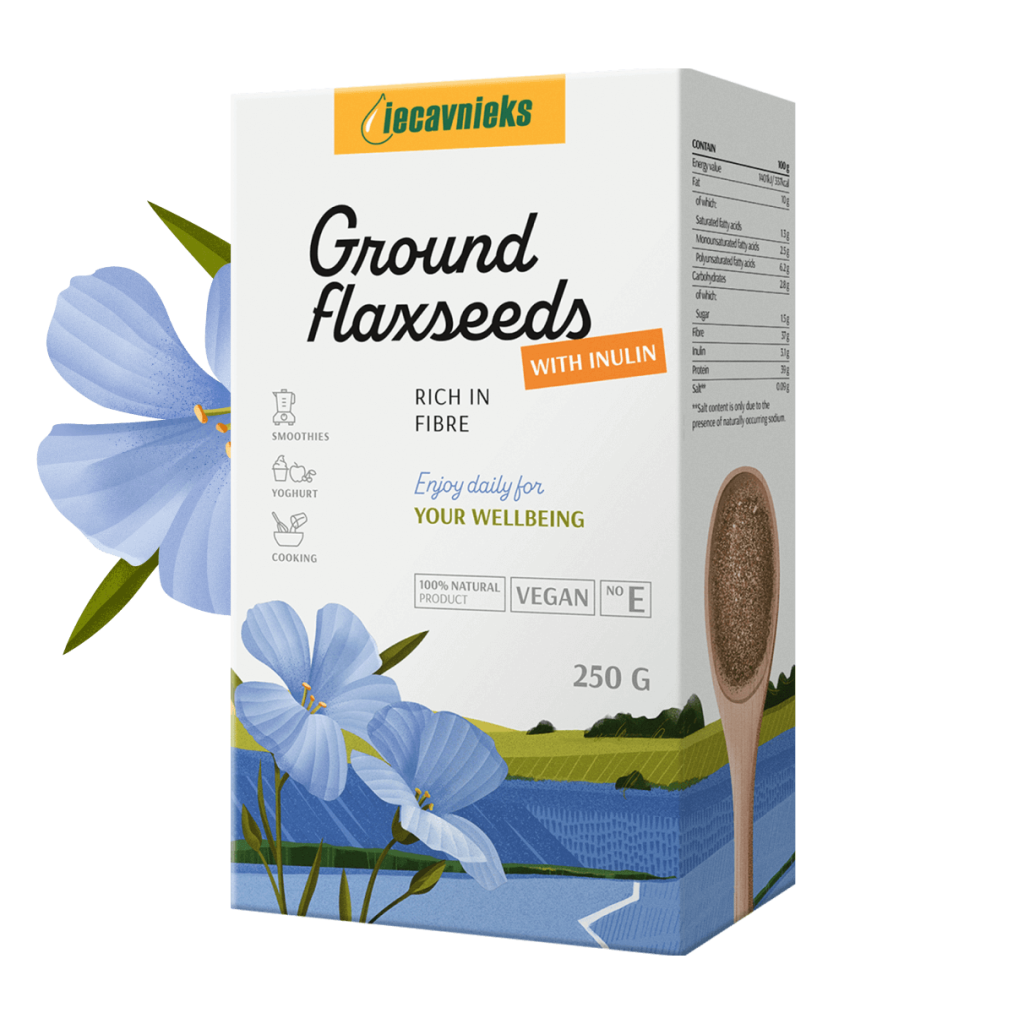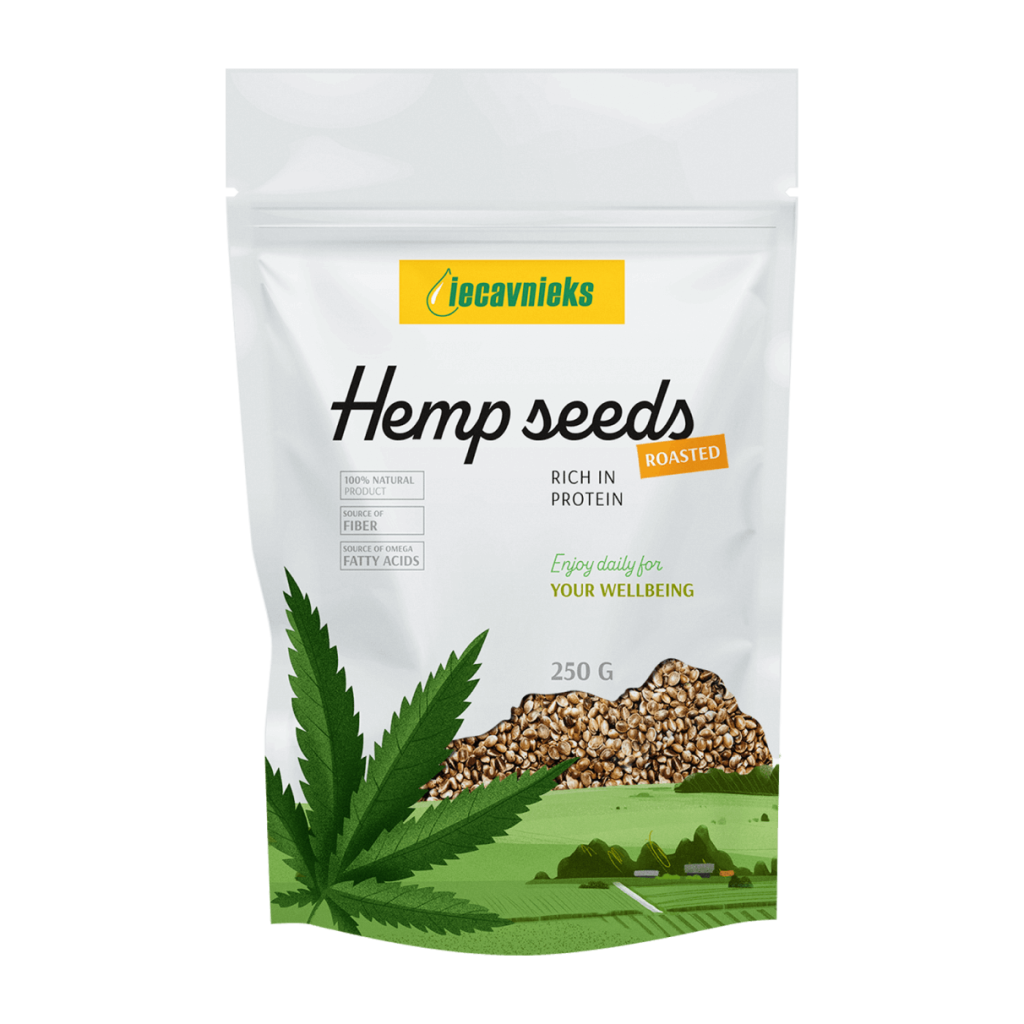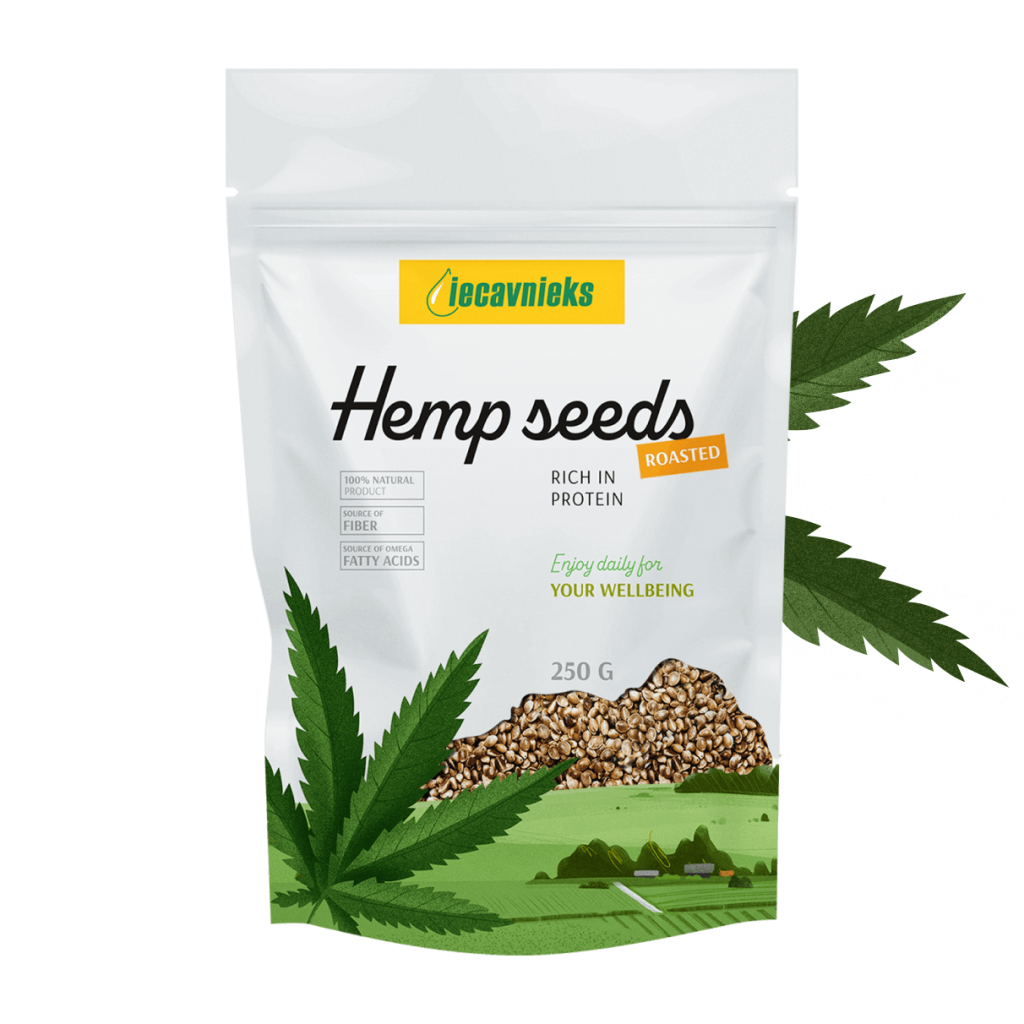IECAVNIEKS FLAXSEED
Flaxseed contains 35–45% oil and is also very rich in complete protein, which contains almost all the essential amino acids, carbohydrates, and vitamins A, B, E and F. Flaxseed contains vitamin F, which the body cannot synthesise on its own. The seeds contain 120–140 mg of vitamin E per 100 g.
Unlike other seeds and nuts, 100 grams of flaxseed contains a significant amount of fibre, which is the recommended daily allowance. Flaxseed contains about 25% protein, which is considered the best protein of plant origin.
Flaxseed is beneficial in the treatment of oncological diseases and hormonal disorders. It also has antibacterial, antifungal and antiviral properties due to the lignan content. Studies have shown that lignan compounds in seeds are 100 times more abundant than in flaxseed oil.
Flaxseed also contains macronutrients such as potassium, calcium, magnesium and iron, and trace elements like copper, zinc, selenium, iodine, boron, etc.
Whole or coarsely ground flaxseed is used as a remedy for diarrhoea. Care should be taken not to grind the seeds too finely, as they start to swell in the stomach. The oil in the ground seeds acts as a lubricant, which softens the intestinal contents upon mixing with them. Constipation can also occur if not enough liquid is taken after consuming flaxseed. Long-term use of flaxseed is considered safe. People suffering from obesity are advised to consume whole flaxseed.
It is recommended to use freshly ground flaxseed, but ground seeds should not be stored for long periods before use as the oil in them oxidises very easily, giving the seeds an unpleasant taste and causing irritation to the stomach. This product is not recommended if you have difficulty swallowing.
A poultice of coarsely ground flaxseed is used to relieve local pain and inflammation, inflammation of the respiratory tract, canker sores, ulcers, rheumatic swelling and gout. The compress dilates blood vessels, relaxes tissues, reduces swelling, tension, pain and contributes to reducing inflammation.
Experts have concluded that whole and ground flaxseed should be consumed regularly as part of a diet to promote general health. It is considered advisable to consume at least five grams per day, or 50 grams per day for medicinal purposes for a period of several months.
